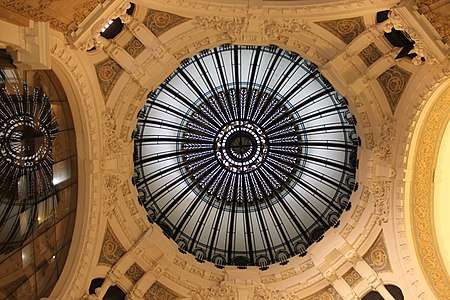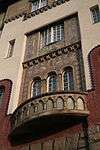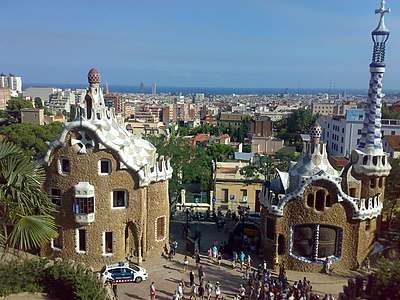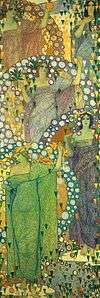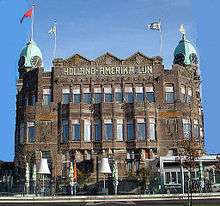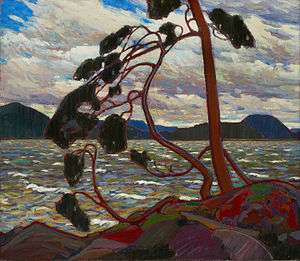Timeline of Art Nouveau
The Timeline of Art Nouveau shows notable works and events of Art Nouveau (an international style of art, architecture and applied art) as well as of local movements included in it (Modernisme, Glasgow School, Vienna Secession, Jugendstil, Stile Liberty, Tiffany Style and others).
| Table cells' colours show the type of works or events |
| Works of architecture or of total art |
| Exhibitions, tours, foundings of magazines, movements, colonies, galleries, cafes |
| Posters, paintings, printings, graphic art and stained glass |
| Other works |
Main events are written in bold.
If two or more objects or events are presented any given year, a work or an event featured in "Images" column is italicized.
Objects of Victor Horta, Antoni Gaudí, Lluís Domènech i Montaner, and Josef Hoffmann included in UNESCO World Heritage List are marked with asterisk*.
See also
Notes
- The statue was erected at Market Square, Helsinki in 1908
References
- https://whc.unesco.org/en/list/320/multiple=1&unique_number=364 Official List of the UNESCO Site "Works of Antoni Gaudí" (1994, 2005)
- Cronologia - Official website of Palau Güell
- De Witt, Dennis J.; De Witt, Elizabeth R. (1987). Modern Architecture in Europe: A Guide to Buildings Since the Industrial Revolution. Penguin Group USA. p. 44. ISBN 978-0-5252-4415-8.
- Benton, Tim; Millikin, Sandra (1975). Art Nouveau 1890-1902. Open University Press. p. 2. ISBN 978-0-3350-0701-1.
- "Major Townhouses of the Architect Victor Horta (Brussels)". UNESCO. Retrieved 22 September 2017.
- Sachar, Brian (1984). An Atlas of European Architecture. Van Nostrand Reinhold. p. 27. ISBN 978-0-4422-8149-6.
- Champigneulle, Bernard (1976). Art Nouveau. Barron's Educational Series. p. 115,121. ISBN 978-0-8120-5111-7.
- Fox and Anchor Pub - Art Nouveau World
- Casa Ramon Casas - Barcelona Modernista
- Ford, Boris (1989). The Cambridge Guide to the Arts in Britain: The Edwardian Age and the inter-war years. Cambridge University Press. p. 317. ISBN 9780521309813.
- Brett, David (2004). C. R. Mackintosh: The Poetics of Workmanship. Reaktion Books. p. 152. ISBN 9781861898395.
- Le quartier Nord-Est. Les squares et leurs abords - Inventaire du patrimoine architectural, Région de Bruxelles-Capitale
- "The "Coup de Fouet" magazine, vol. 27 (2016), pp. 14–25" (PDF).
- Ancienne maison et atelier de Victor Horta - Inventaire du patrimoine architectural, Région de Bruxelles-Capitale
- The 1902 Beethoven Exhibition - Secession.at
- Hôtel Solvay - Inventaire du patrimoine architectural, Région de Bruxelles-Capitale
- Fontbona, Francesc; Miralles, Francesc (1985). Història de l'art català: Del modernisme al noucentisme, 1888-1917, Volume 7 (in Catalan). Edicions 62. p. 74. ISBN 978-8-4297-2282-6.
- http://www.storiadimilano.it/citta/Porta_Orientale/palazzi_liberty.htm
- The Black Friar Pub - Art Nouveau World
- Aigner, Carl; Krug, Wolfgang (2002). Waldmüller bis Schiele: Meisterwerke aus dem Niederösterreichischen Landesmuseum vom Biedermeier zum Expressionismus (in German). p. 228. ISBN 978-3-8521-4773-4.
- Reutner, Brigitte; Wolfgang-Gurlitt-Museum (2003). Lentos Kunstmuseum Linz: Gemälde - die Sammlung (in German). Lentos Kunstmuseum Linz. p. 268. ISBN 978-3-9022-2305-0.
- Un chef d’œuvre Art Nouveau - Centre belge de la Bande dessinée
- "The "Coup de Fouet" magazine, vol. 8 (2006), pp. 33" (PDF).
- "The "Coup de Fouet" magazine, vol. 16 (2010), pp. 2–10" (PDF).
- La Chaux-de-Fonds - Réseau Art Nouveau Network
- http://www.fondationlecorbusier.fr/corbuweb/morpheus.aspx?sysId=13&IrisObjectId=5422&sysLanguage=en-en&itemPos=68&itemCount=78&sysParentId=64
- Ecole d'art et Style sapin - La Chaux-de-Fonds
- A Study of the Decorative Art Movement in Germany. Vitra Design Museum. 2008. p. 9. ISBN 978-3-9319-3629-7.
- Scotland Street School - Art Nouveau World
- Junghanns, Kurt (1982). Der Deutsche Werkbund. Sein erstes Jahrzehnt (in German). p. 140. ISBN 388520097X.
- Art Nouveau European Route: Ålesund
- https://whc.unesco.org/en/list/804/multiple=1&unique_number=950 Official List of the UNESCO site "Palau de la Música Catalana and Hospital de Sant Pau, Barcelona" (1997)
- Villa Ortiz Basualdo - Art Nouveau World
- Interaktīva karte: Rīgas Jūgendstila pērles
- Casa do Major Pessoa - Sistema de Informação para o Património Arquitetónico
- "The "Coup de Fouet" magazine, vol. 31 (2019), p. 34" (PDF).
- Tiffany Lamp - Encyclopaedia Britannica
- National Museum of Finland - Museums of EU
- Bibendum Restaurant & Oyster Bar - Art Nouveau World
- "Stoclet House". UNESCO World Heritage Centre. July 4, 2009. Retrieved July 4, 2009.
- "Palais Stoclet ist Weltkulturerbe". www.oe24.at. 2009-06-27. Retrieved 2016-06-10.
- Chronology - Official website of Casa Milà
- F. Lanier Graham, Hector Guimard, Exhibition Catalog, New York: Museum of Modern Art, 1970, OCLC 81368, p. 14.
- Culture Palace - Art Nouveau World
- Sachar, Brian (1984). An Atlas of European Architecture. Van Nostrand Reinhold. p. 58. ISBN 978-0-4422-8149-6.
- Jetsonen, Jari; Jetsonen, Sirkkaliisa (2008). Finnish Summer Houses. Princeton Architectural Press. p. 183. ISBN 978-1-5689-8752-1.
- Palacio Baburizza - El Palacio
- Turner, Jane (2000). Encyclopedia of Latin American and Caribbean art. Grove's Dictionaries. p. 682. ISBN 978-1-8844-4604-7.
- Museum, Volumes 41-42. UNESCO. 1989. p. 118.
- Reid, Dennis (1975). Tom Thomson: The Jack Pine: Masterpieces in the National Gallery of Canada (No. 5). Ottawa: National Gallery of Canada. p. 27.CS1 maint: ref=harv (link)
This article is issued from Wikipedia. The text is licensed under Creative Commons - Attribution - Sharealike. Additional terms may apply for the media files.

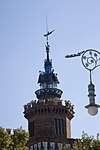
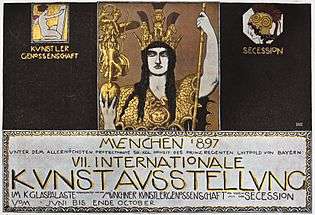

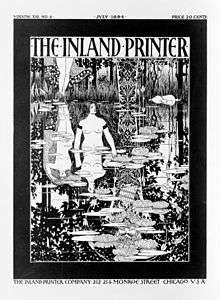
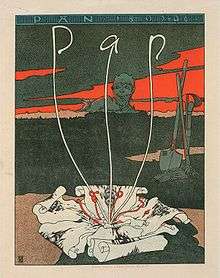
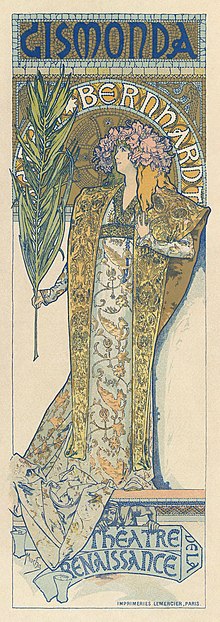
_-_Google_Art_Project.jpg)
.jpg)
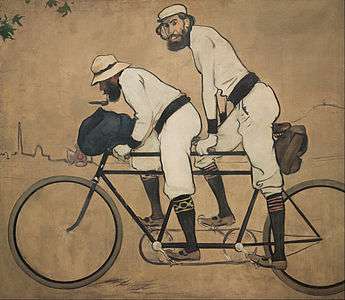


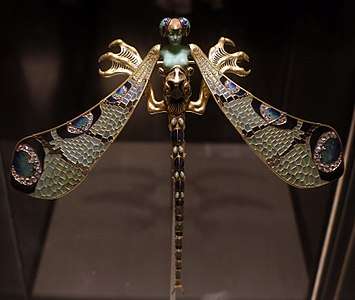
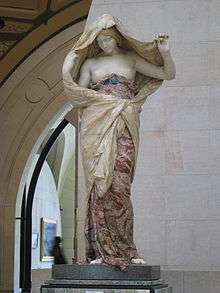

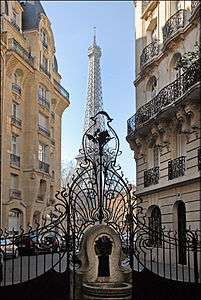
.jpg)
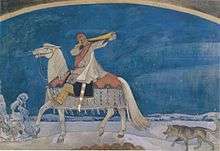
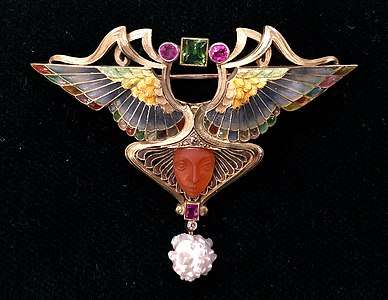

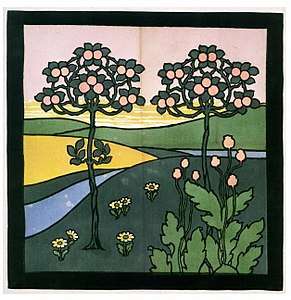
_(4935426077).jpg)
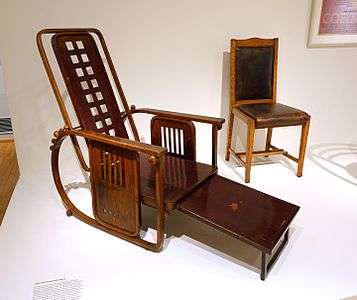
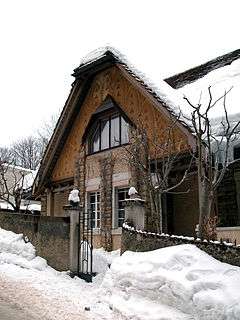
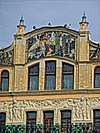
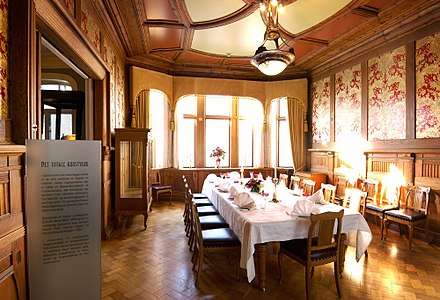
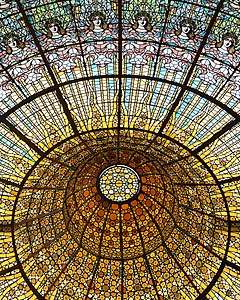
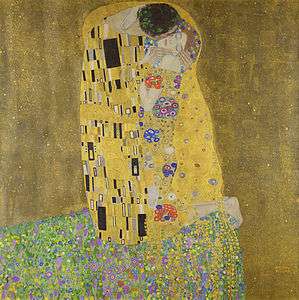

_2014-03-13.jpg)
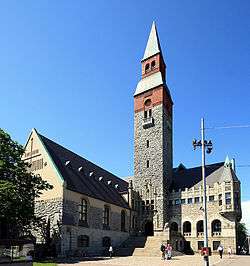
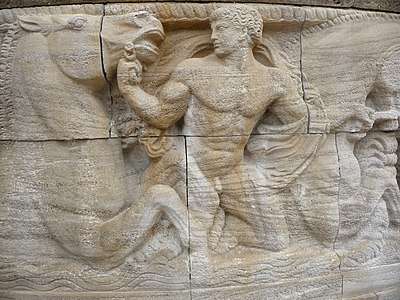
_ceiling%2C_Prague_-_8875.jpg)

